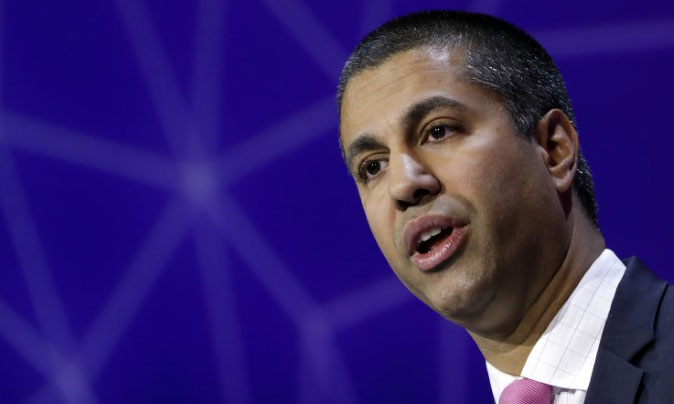
Net Neutrality Rollback Plan Draws Strong Responses on All Sides
FCC Chairman Ajit Pai this week revealed his plan for rolling back the open internet regulations pushed through by his predecessor, making a case for a light approach. That stance drew mixed responses from industry groups.
One of the Obama administration’s big wins on the technology front is facing an existential threat.
On Wednesday, Federal Communications Commission Chairman Ajit Pai announced his plan for rolling back net neutrality regulations put in place by his predecessor, Tom Wheeler. Pai, a noted critic of the 2015 plan who voted against it as a FCC commissioner, said his goal was to take a lighter touch with internet regulations.
“Going forward, we cannot stick with regulations from the Great Depression that were meant to micromanage Ma Bell,” Pai explained during a speech at the Newseum in Washington, DC, according to NPR. “Nothing about the internet was broken in 2015.”
The attempted rollback—which would push internet access away from being treated as a common carrier under Title II of the Communications Act—won’t happen right away. It will be a multi-month process involving public feedback on any regulatory changes.
But during his speech [PDF], Pai argued that a rollback was necessary and suggested that the rulemaking strayed from the guidelines set by the Telecommunications Act of 1996 in favor of a stricter policy that came about after a federal court had invalidated the existing net neutrality rules. In addition, he suggested the old system was working before regulators stepped in:
For almost two decades, the FCC respected that policy. It adopted a light-touch regulatory framework, one explicitly approved by the U.S. Supreme Court, which enabled the internet to grow and evolve beyond almost anyone’s expectations. Under this framework, a free and open internet flourished. Under this framework, America’s internet economy produced the world’s most successful online companies: Google, Facebook, and Netflix, just to name a few. Under this framework, the private sector invested about $1.5 trillion to build the networks that gave people high-speed access to the internet. And under this framework, consumers benefited from unparalleled innovation.
But the Internet Association, a group that represents the three technology companies he referenced, had a different take. While Pai claimed the rules weren’t necessary and were stifling growth, Internet Association President and CEO Michael Beckerman said the rules were protecting both consumers and innovation.
“Consumers pay for access to the entire internet free from blocking, throttling, or paid prioritization,” Beckerman stated. “The existing 2015 Open Internet Order protects consumers from ISPs looking to play gatekeeper or prioritize their own content at the expense of competition online. Rolling back these rules or reducing the legal sustainability of the Order will result in a worse internet for consumers and less innovation online.”
Pai’s stance found more appreciation in the telecom industry, with Michael Powell, the president and CEO of NCTA – The Internet & Television Association, praising Pai’s willingness to change strategies. However, he emphasized that internet providers would not make changes at the cost of consumers.
“Reversing the classification of internet services will not change the commitment of cable ISPs to provide an open internet experience for our customers,” Powell said in a statement. “We do not block, throttle, or otherwise interfere with consumers’ desire to go where they want on the internet.”
USTelecom President and CEO Jonathan Spalter echoed the thoughts in a Morning Consult op-ed. “Our internet was open, dynamic and growing before the Title II disruption, and it will remain so after,” Spalter wrote.
Nonetheless, the FCC’s planned moves are likely to create a high-profile battle in the public square, as they did in 2014 and 2015, when mass online protests—driven by industry groups, tech companies, and the public—at one point led comedian John Oliver to compare Tom Wheeler to a dingo eating a baby. That characterization, among other things, helped net neutrality supporters win political points that led to the Title II deal.
“I certainly think we will try every possible avenue, including reaching back out to John Oliver,” Evan Engstrom, the executive director of the startup advocacy group Engine, told CNBC.
FCC Chairman Ajit Pai. (Eric Galliard/Reuters)






Comments